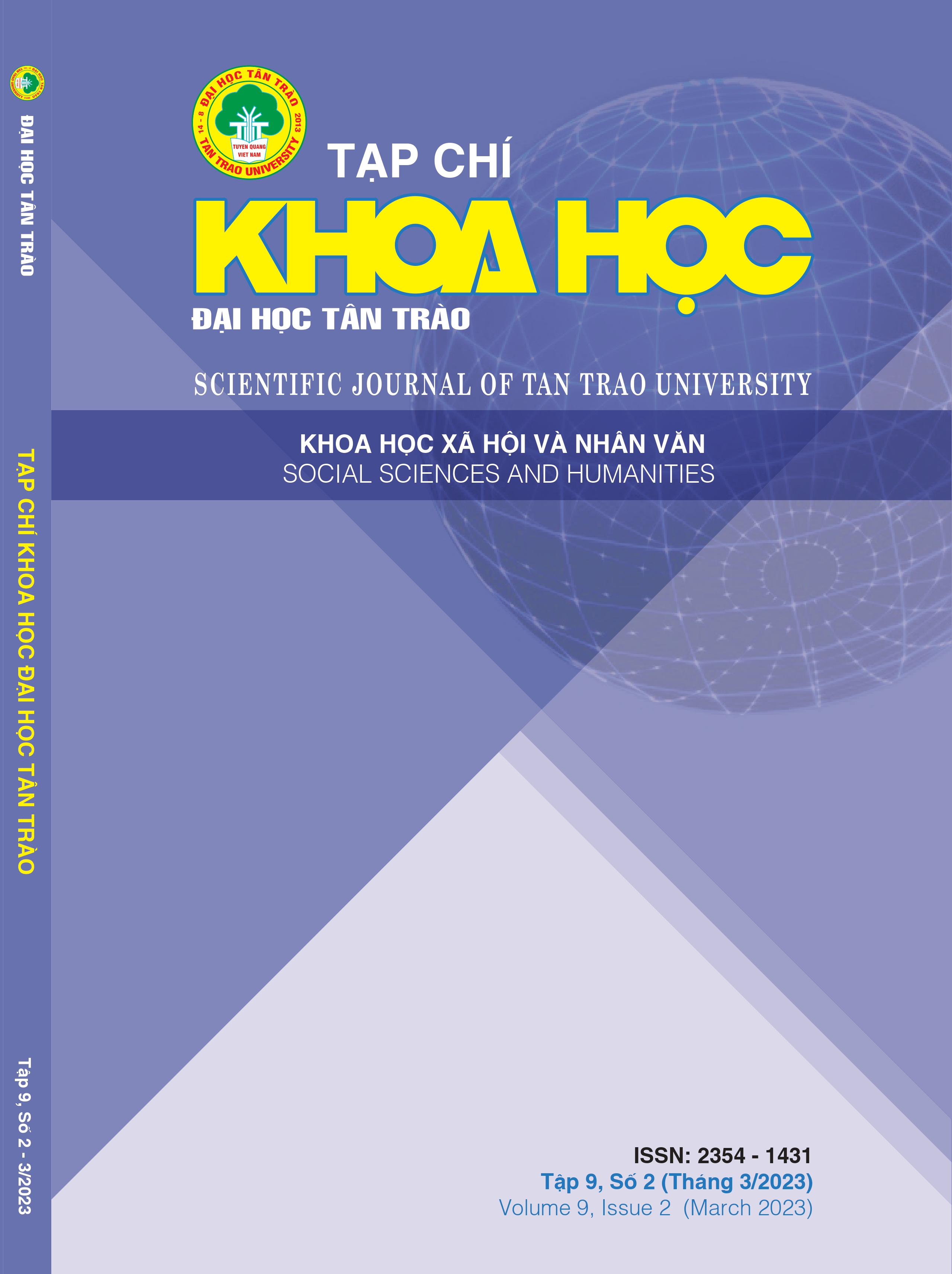Ho Chi Minh Thought of building a new culture and the application of the Party in the current period
DOI:
https://doi.org/10.51453/2354-1431/2023/848Keywords:
Policy, Communist Party of Vietnam, Ho Chi Minh Thought, new culture, applicationAbstract
During his life of revolutionary activities, President Ho Chi Minh has always been deeply interested in the cause of building and developing a new Vietnamese culture. Ho Chi Minh's thoughts in general, and Ho Chi Minh's thoughts on building a new civilization, the precious heritage of our Party and nation. Using documentary, historical, logical, analytical, and synthesis methods, the article clarifies the essential contents of building a new culture according to Ho Chi Minh's thought and its application. The Communist Party of Vietnam in the current period affirms that building and developing a new culture is the goal and driving force for the country's sustainable development.
Downloads
Downloads
Published
How to Cite
Issue
Section
License

This work is licensed under a Creative Commons Attribution-ShareAlike 4.0 International License.
All articles published in SJTTU are licensed under a Creative Commons Attribution-ShareAlike 4.0 International (CC BY-SA) license. This means anyone is free to copy, transform, or redistribute articles for any lawful purpose in any medium, provided they give appropriate attribution to the original author(s) and SJTTU, link to the license, indicate if changes were made, and redistribute any derivative work under the same license.
Copyright on articles is retained by the respective author(s), without restrictions. A non-exclusive license is granted to SJTTU to publish the article and identify itself as its original publisher, along with the commercial right to include the article in a hardcopy issue for sale to libraries and individuals.
Although the conditions of the CC BY-SA license don't apply to authors (as the copyright holder of your article, you have no restrictions on your rights), by submitting to SJTTU, authors recognize the rights of readers, and must grant any third party the right to use their article to the extent provided by the license.


